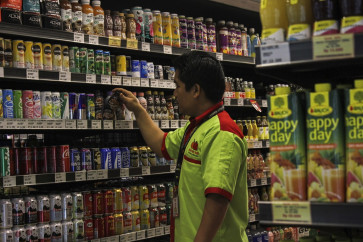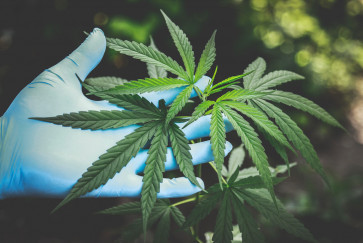RI finalizes new NDC, likely to keep old emissions target
Indonesia is likely to maintain its target for reducing greenhouse gas emissions in the new nationally determined commitment (NDC), a pledge made by nations to cut their emissions under the United Nations Framework Convention on Climate Change (UNFCCC), the Environment and Forestry Ministry has stated
Change text size
Gift Premium Articles
to Anyone

I
ndonesia is likely to maintain its target for reducing greenhouse gas emissions in the new nationally determined commitment (NDC), a pledge made by nations to cut their emissions under the United Nations Framework Convention on Climate Change (UNFCCC), the Environment and Forestry Ministry has stated.
The ministry is planning to outline Indonesia's pledge to reduce emissions by 29 percent independently — or 41 percent if with international assistance — by 2030, the same target outlined in the first NDC submitted in 2016 as a part of the Paris Agreement goals of limiting global warming to 1.5 degrees Celsius above preindustrial levels.
The ministry is finalizing the new NDC and will submit it to the UN next month.
Prior to the 25th UN Climate Change Conference, known as COP25, in Madrid in December last year, climate observers and the UN urged participating nations to upgrade their commitments through their respective NDCs to cut emissions but the request has mostly fallen on deaf ears. Experts have said that the COP25 summit was a failure. Furthermore, UN Secretary-General António Guterres stated that the international community had lost an important opportunity to show increased ambition on mitigation, adaptation and finance to tackle the climate crisis.
The ministry’s director general of climate change control, Ruandha Agung Sugardiman, defended Indonesia's planned NDC, saying that such a commitment was not merely about numbers and that it would instead focus on demonstrating the quality of Indonesia’s efforts.
“Our ambition is not just to cut the numbers but more importantly focus on what steps we can undertake to increase [our efforts in reducing greenhouse gasses],” Ruandha said on the sidelines of a public consultation on Tuesday.
The ministry has been seeking inputs, inviting environmental groups, experts and public officials to hear their opinions on the planned NDC before submitting it in March.
“In our updated NDC we will outline what we can do to attain the 29 percent goal [of reducing emissions],” Ruandha said.
He cited data from the ministry showing that the government managed to reduce emissions by 24 percent in 2017 but only by 15 percent in 2018. This was mainly due to land and forest fires hindering the government’s efforts.
The data also showed that 438,363 hectares of land and forest were burned in 2016, about 164,483 ha in 2017 and 529,266 ha in 2018.
Forestry is one of the sectors with the largest projected greenhouse gas reductions in Indonesia, with 17.2 percent, followed by the energy sector at 11 percent of targeted reductions, as well as industry, waste and agriculture — with a combined 0.8 percent.
Ruandha said that preventing land and forest fires — among the major sources of emissions in the country — was a way to reach the emissions-reduction target. But it is only possible if authorities can reduce fires to under 15,000 ha a year. Emissions produced by the energy sector could be reduced significantly with the use of more biofuels, especially since the government is planning to impose a mandatory use of 50 percent blended biodiesel (B50) in 2021, he said.
The Environment and Forestry Ministry’s climate change mitigation director, Emma Rachmawati, said despite the fact that there would likely be no increase in the NDC’s emissions-reduction target, the ministry would improve management and transparency of data to allow all stakeholders to better understand how much emissions had been reduced and track progress.
Emma said the ministry would also work toward reducing deforestation and land degradation, as well as promoting forest and land rehabilitation and ecosystem restoration.
Observers have said Indonesia has been carrying out business as usual rather than stepping up its game to solve the climate crisis and that while the government has encouraged industries to shift to renewable energy, the country is still powered overwhelmingly by fossil fuels.
Ahmad Syafrudin from the Committee for the Phasing Out of Leaded Fuel (KPBB) said the 29 percent in the new NDC was a pessimistic target, urging the government to include certain details that were overlooked in the previous NDC, such as urban development policy.
“The first NDC does not look at urban development policy although we know that growing urban areas means increasing urban populations — which also means increasing CO2 emissions and by 2050 almost half of Indonesians will live in cities,” Ahmad said.
The KPBB activist also criticized the NDC for failing to outline ways to control emissions in the transportation sector.
A recent report by United States-based nonprofit organization Universal Ecological Fund suggests that even if Indonesia met the NDC, the reduction would be insufficient to slow global warming.









